Nevada drivers can benefit from Personal Injury Protection (PIP) insurance, a non-mandatory auto insurance coverage.
PIP insurance provides financial support for medical expenses and related costs resulting from an accident, regardless of fault.
This coverage can be especially valuable in cases where the other party is uninsured or underinsured, helping to ensure that medical bills and other expenses are covered.
What Is PIP Insurance?
Personal Injury Protection insurance coverage provides financial support for medical expenses and lost wages resulting from an accident, regardless of fault.
This auto insurance coverage can be utilized by individuals who have been involved in an accident, regardless of who was responsible.
Even if you were the cause of the accident, you may still be eligible to receive PIP benefits, making it a valuable resource for those who have been injured in a collision.
Personal Injury Protection (PIP) insurance has specific coverage limitations. PIP insurance solely covers medical expenses and lost wages, excluding property damage or liability for damages caused to others in an accident. To ensure coverage for these additional expenses, separate insurance policies such as liability insurance or collision insurance are necessary.

What Does PIP Coverage Do?
Nevada’s PIP insurance provides comprehensive coverage for medical expenses, including hospital bills, doctor’s visits, prescription medications, and rehabilitation costs. Lost wages due to missed work resulting from injuries sustained in a car accident are also covered. If you already have health insurance, your PIP insurance will complement your existing coverage, working together to ensure comprehensive coverage of medical expenses.
Additionally, PIP insurance will cover medical expenses that surpass your health insurance coverage limits, ensuring you’re protected. This coordination ensures that you receive the necessary medical attention without worrying about the financial burden.
In the event of a car accident in Nevada, PIP insurance policyholders should take the following steps:
- Seek Medical Treatment: After a car accident, it’s essential to prioritize your health and seek medical attention promptly. Your PIP insurance will help cover the medical expenses resulting from the accident, ensuring you receive the necessary treatment without added financial stress.
- File a Claim: Following medical treatment, filing a claim with your insurance company is the next step. To substantiate your claim, gather documentation pertaining to the accident and your medical expenses, which will facilitate a seamless claims process.
- Insurance Company Review: Your insurance company will assess your claim and calculate the coverage you’re entitled to, which may encompass medical expenses, lost wages, and other associated costs. This evaluation will help determine the appropriate level of coverage for your specific situation.
- Payment of Benefits: When your claim is approved, your insurance company will disburse the benefits you’re eligible for, which may include payments for medical expenses, lost wages, and other related costs. This financial assistance will help offset the expenses incurred due to the accident, providing some relief during a challenging time.

What Is Covered by PIP?
Nevada’s Personal Injury Protection insurance coverage provides policyholders with financial support for medical expenses and lost wages resulting from a car accident, regardless of fault. Policyholders should carefully review their policy to understand its terms and conditions, as PIP insurance coverage may have specific requirements and restrictions, such as seeking medical treatment within a designated timeframe after the accident.
PIP and Medical Expense Coverage
PIP insurance typically encompasses medical expenses resulting from an accident, including doctor’s visits, surgery, hospitalization, diagnostic tests, and prescription medications, akin to damages covered in a personal injury lawsuit. This coverage extends not only to the policyholder but also to passengers in the vehicle at the time of the accident, regardless of fault. Specifically, PIP insurance covers various medical expenses such as emergency medical treatment, surgical procedures, X-rays, diagnostic tests, chiropractic care, physical therapy, dental care, and prosthetics, as well as other medical devices.

PIP and Lost Wage Coverage
PIP insurance provides coverage for lost wages resulting from an accident, in addition to medical expenses. If the policyholder or passengers are unable to work due to injuries, PIP insurance can help cover lost wages. Typically, PIP insurance covers a percentage of the policyholder’s pre-accident income, up to a specified limit. Additionally, some policies may cover lost earning capacity if the policyholder cannot return to work at the same level as before the accident.
Other Expenses PIP Covers
Beyond medical expenses and lost wages, PIP insurance may also encompass additional expenses, including funeral expenses, rehabilitation expenses, childcare costs, and accidental death benefits. In the unfortunate event of a fatal auto accident in Nevada, PIP insurance can be utilized to cover funeral expenses, which may comprise burial or cremation costs, as well as other expenses, including memorial service or cemetery plot costs.
Policyholders with children who are unable to care for them due to accident-related injuries can rely on PIP insurance to cover childcare expenses, such as daycare, after-school programs, or babysitters. Furthermore, PIP insurance encompasses rehabilitation expenses, including physical therapy or occupational therapy, which are crucial for helping the policyholder or passengers regain mobility and recover from their injuries.
Accidental death benefits may be included in PIP insurance policies, providing a financial safety net for designated beneficiaries in the event of a fatal accident. In the unfortunate event of a policyholder’s passing, these benefits can help alleviate the financial burden on loved ones by covering expenses such as funeral costs or other end-of-life expenses, offering a measure of comfort during a challenging time.

Who Qualifies for PIP Insurance in Nevada?
Nevada drivers have the flexibility to add PIP insurance to their policies, which offers protection for individuals injured in a vehicle. By opting for PIP insurance, drivers can access benefits in specific situations. For example, if a driver is injured in a car accident, they can file a claim under their own policy to receive coverage. Likewise, if a passenger is injured in a car accident, they can also receive coverage under the driver’s policy, ensuring they receive the support they need.
Advantages and Disadvantages of PIP Insurance in Nevada
When evaluating Personal Injury Protection (PIP) insurance coverage in Nevada, it’s essential to weigh the advantages and disadvantages.
Advantages of PIP:
- Coverage for Medical Expenses: PIP insurance coverage serves as a financial safety net for individuals who may incur medical expenses resulting from a car accident. This protection helps alleviate the financial burden on those with inadequate medical insurance, while also providing assistance with medical insurance deductibles or co-pays.
- Coverage for Lost Wages: PIP insurance coverage includes reimbursement for lost wages, supporting policyholders who are unable to work following a car accident. This benefit enables policyholders to meet their financial obligations and provide for their families during their recovery period.
- No Fault Coverage: PIP insurance coverage operates on a “no fault” principle, meaning that it provides benefits irrespective of the accident’s cause. This approach enables policyholders to access benefits, even if they were responsible for the accident, provided that the accident resulted in injuries.
- Faster Claims Processing: The processing of PIP insurance claims is generally more expedient compared to other types of claims. This is because PIP claims do not necessitate lengthy investigations into fault or liability, enabling policyholders to access benefits swiftly and commence their recovery process earlier.
Disadvantages of PIP:
- Additional Cost: In Nevada, PIP insurance coverage is an optional add-on to auto insurance policies, requiring policyholders to pay an extra premium to secure this protection. As a result, the overall cost of auto insurance coverage may rise, potentially making it unaffordable for some individuals.
- Limited Coverage: PIP insurance coverage comes with benefit limits, capping the amount policyholders can receive. Nevada’s maximum benefit of $25,000 may fall short of covering all medical expenses and lost wages in certain situations.
- Coverage Restrictions: PIP insurance policies often come with specific conditions, such as seeking medical attention within a designated timeframe post-accident. Failure to meet these conditions may render policyholders ineligible for benefits.
- Duplicate Coverage: In certain instances, individuals may already possess medical insurance that offers benefits akin to PIP insurance. If so, investing in PIP insurance could lead to redundant coverage and unnecessary expenditure.
PIP insurance coverage in Nevada presents both benefits and drawbacks. On the one hand, it provides financial support for medical expenses and lost wages. On the other hand, it has limitations on benefit amounts and may necessitate additional expenses for policyholders. Therefore, individuals should carefully consider the advantages and disadvantages of PIP insurance coverage and decide if it’s a essential addition to their auto insurance policy.
When considering PIP insurance coverage in Nevada, seeking guidance from a personal injury lawyer can provide personalized insights into its relevance for your unique situation. A lawyer can offer expert legal guidance on the advantages and limitations of PIP insurance coverage, tailoring their advice to your specific circumstances. They can also clarify Nevada’s legal requirements regarding auto insurance coverage. Furthermore, a lawyer can leverage their expertise to negotiate settlements, review your auto insurance policy, including PIP insurance provisions, and help you understand the available benefits and coverage limitations, ensuring you make an informed decision.
Personal Injury Protection (PIP) insurance is a type of auto insurance that provides coverage for medical expenses and lost wages resulting from an accident. Regardless of fault, PIP insurance can be utilized to cover these expenses. This means that policyholders can access PIP benefits even if they were responsible for the accident.
PIP insurance is limited to covering medical expenses and lost wages, and does not extend to property damage or liability for damages caused to others in an accident. Consequently, additional insurance coverage, such as liability insurance or collision insurance, is necessary to address these extra expenses.



